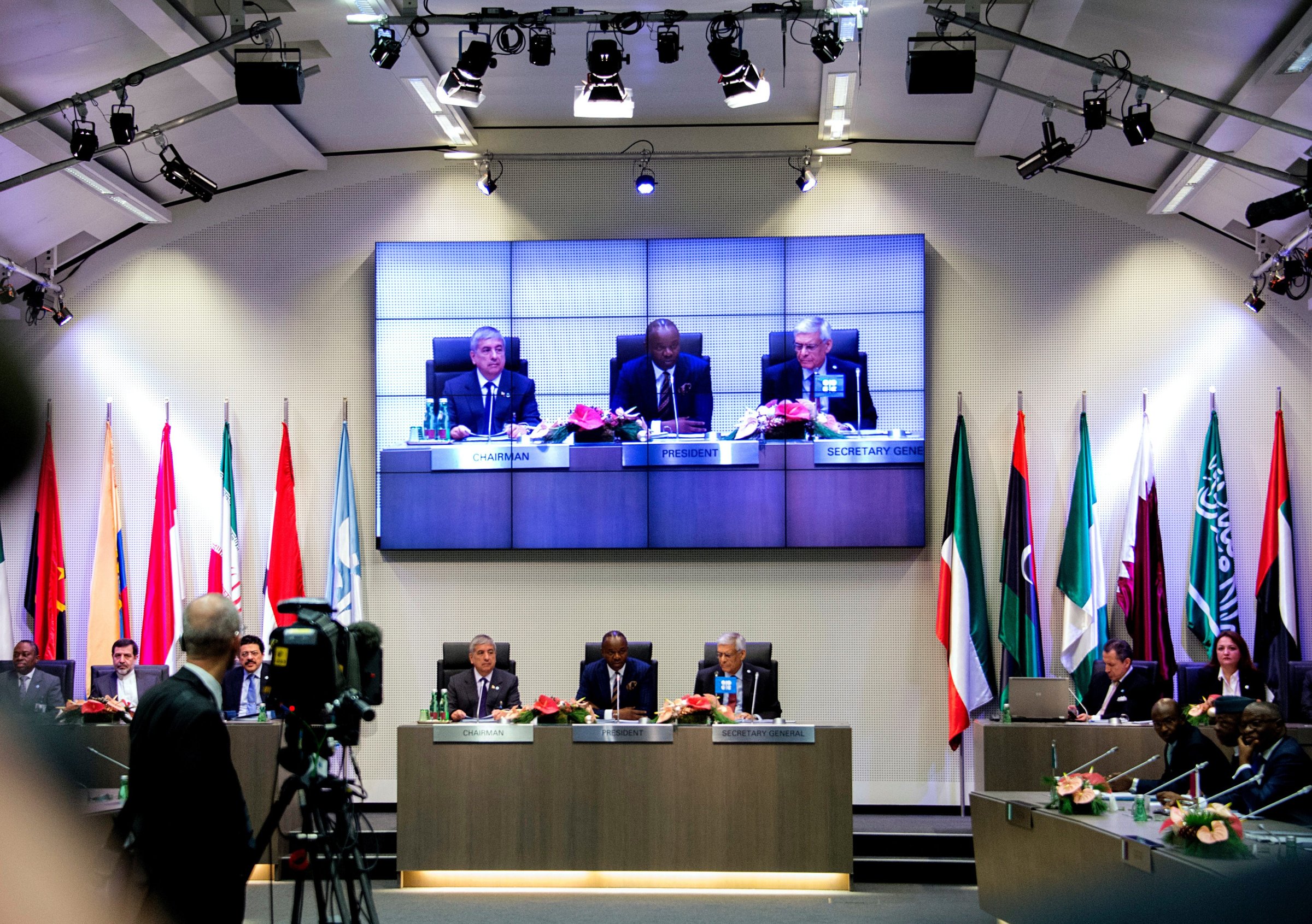
OPEC is set to convene its twice-a-year meeting in Vienna, and a growing number of the group’s members are clamoring for production cuts in order to boost oil prices.
The problem is a collective one. Sure, everyone agrees production should be cut, but each member wants someone else to shoulder the burden. That results in no decision.
The only member whose voice really counts is Saudi Arabia. Interestingly, the de facto leader of OPEC is starting to change its tone, a sign that the desperation from some OPEC countries – along with the financial pain that Saudi Arabia itself has been feeling – is starting to have an effect.
As the OPEC meeting is set to begin on Friday December 4, Saudi Arabia reportedly floated a proposal in which it would agree to production cuts, but only if all of OPEC committed to sharing the burden, as well as other non-OPEC oil producers.
Energy Intelligence reported that Saudi Arabia would be open to a collective cut of 1 million barrels per day in 2016, but it would only agree to such a move if countries such as Russia, Mexico, Oman, and Kazakhstan also signed on.
It is hard to see how such a monumental coordination effort could get off the ground, and as the FT puts it, Saudi Arabia “has set a very high bar for a deal that is unlikely to be met by the time of Friday’s meeting in Vienna, but it leaves open the possibility of an agreement in 2016.”
While the non-OPEC oil producers are a long shot, even getting all of OPEC members on board for such a plan might be a heavy lift. Several OPEC members cannot afford to cut production. Venezuela, for example, is descending into an economic crisis, and production cuts are not an option. The same is true for Libya and Iraq.
Another country that would likely be unwilling to enact production constraints is Iran, which is set to come back to the oil markets once international sanctions are removed. A recently released IAEA report found no evidence that Iran continued work on its nuclear weapons program after 2009, a good enough result for American officials to finally begin loosening the screws on Iran. The IAEA is expected to vote soon on whether to finally close the file on its decade-long investigation into Iran’s nuclear program. The U.S. says it will begin removing sanctions in January.
That means Iran is set to bring some oil production back to the market. Iranian officials say that they can ramp up production by 500,000 barrels per day relatively quickly, and up to 1 million barrels per day in subsequent months.
Critically, though, Iran is not willing to sacrifice its production, likely dooming any coordinated effort from OPEC. “We do not accept any discussion about increases of Iran production after the lifting of sanctions. It is our right and anyone cannot limit us to do it. We will not accept anything in this regard,” Iranian oil minister Bijan Zangeneh said in Vienna ahead of the OPEC meeting. “And we do not expect out colleagues in OPEC to put pressure on us… It is not acceptable, it’s not fair.”
Russia too has shown very little willingness to coordinate production cuts. The possibility of coordination between Russia and OPEC was always overhyped in the media. The financial and economic pressure on Moscow from low oil prices has been significant, so Russia has little choice but to try to make up the shortfall through higher volumes of oil exports. So while media reports have routinely surfaced throughout this year about the possibility of coordinated cuts with Russia, such a scenario is highly unlikely.
That leaves us back to where we started with the OPEC meeting: no change in policy. To be sure, Saudi Arabia denies even making the proposal to agree to production cuts. But if it did, the move could have been an attempt by Saudi Arabia not to be seen as obstinate or inflexible, or as the cause of market turmoil. At the same time, perhaps they laid out conditions that were always going to be too difficult to meet, allowing them to continue on their current course of pursuing market share. We will know more this weekend.
This article originally appeared on Oilprice.com.
More from Oilprice.com:
More Must-Reads from TIME
- Donald Trump Is TIME's 2024 Person of the Year
- Why We Chose Trump as Person of the Year
- Is Intermittent Fasting Good or Bad for You?
- The 100 Must-Read Books of 2024
- The 20 Best Christmas TV Episodes
- Column: If Optimism Feels Ridiculous Now, Try Hope
- The Future of Climate Action Is Trade Policy
- Merle Bombardieri Is Helping People Make the Baby Decision
Contact us at letters@time.com